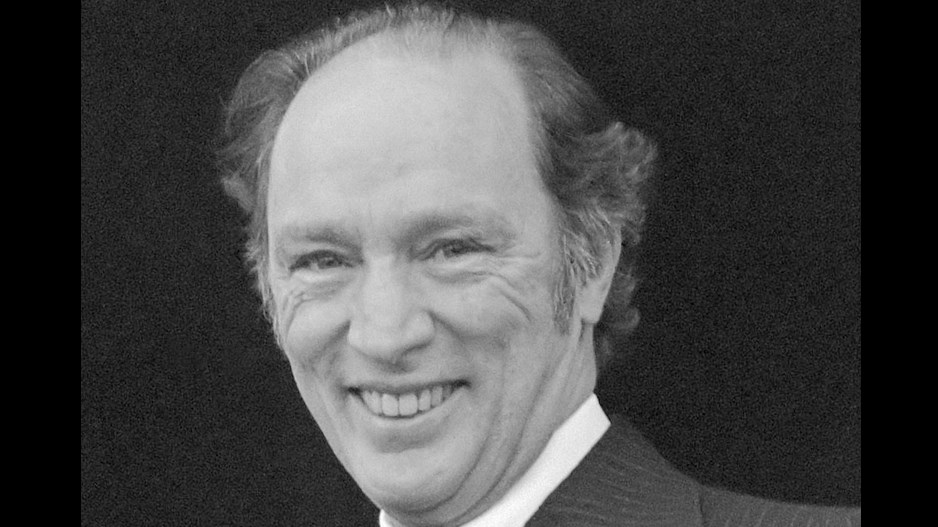This month, the exercise also serves to review the level of animosity in some parts of the country towards the current head of government, who looks all but certain to seek a new mandate in an early election.
Our survey asks Canadians to select the best and worst prime ministers the country has had since 1968. The last few weeks have brought increased attention to the federal governments of the past, particularly as Canadians assess the legacy of residential schools that so few learned about in school.
Compared to last year, there are some slight fluctuations. Pierre Trudeau remains the top choice when Canadians are asked to pinpoint the best of the last nine prime ministers (20%, down three points). Stephen Harper remains in second place with 16% (unchanged), followed by Justin Trudeau with 13% (down two points), Jean Chrétien with 7% (down four points) and Brian Mulroney also with 7% (down one point).
The support from the country’s most experienced voters allows Pierre Trudeau to claim the top spot once again. Practically three in 10 Canadians aged 55 and over (29%) pick the elder Trudeau as the best prime minister, followed by Harper (18%), Mulroney (9%) and Chrétien (7%). The younger Trudeau is in fifth place (6%), barely ahead of Paul Martin (5%).
Middle-aged Canadians are fonder of the last Conservative prime minister. Harper reaches 18% on this question among those aged 35 to 54, with Pierre Trudeau (15%) and his son (14%) close behind. Canadians aged 18 to 34 put Justin Trudeau in first place (18%), followed by his father (15%) and Harper (12%).
On a regional basis, the numbers are particularly good for Pierre Trudeau in Ontario (24%) and Quebec (21%). Still, this is well below the identification that Harper continues to command in Alberta (32%) and Manitoba and Saskatchewan (26%). Atlantic Canadians have the two Trudeaus practically tied (17% for Pierre, 14% for Justin). A similar scenario ensues in British Columbia (20% for the elder Trudeau, 16% for the younger one).
When the same names are placed in front of Canadians on a question to gauge who the worst prime minister is, the current and previous heads of government are still polarizing. Justin Trudeau (22% up four points) is virtually tied with Harper (21%, down two points), followed by Mulroney (7%, up one point) and Pierre Trudeau (6%, down one point).
Canadians aged 18 to 34 have a harder time with this question, with 41% saying they are not sure when asked who the worst recent prime minister has been, compared to 23% among those aged 35 to 54 and 26% among those aged 55 and over. Across all three generations, the battle is being waged between Justin Trudeau and Stephen Harper, although it is noteworthy that 10% of Canadians aged 55 and over gave their vote to Mulroney – a fate that all other prime ministers who served from 1968 to 2006 were able to escape.
The regional animosity is decidedly more powerful on the second question. More than one in four Atlantic Canadians (30%) and Quebecers (26%) chose Harper, and more than two in five Albertans (44%) picked Justin Trudeau.
The results for the nine leaders of the opposition also remained stable. Canadians continue to hold a special place for Jack Layton, with 50% of respondents (down four points) saying he would have made a “very good” or “good” prime minister. Layton never got the chance to head into an electoral campaign as the leader of the official opposition but provided the New Democratic Party (NDP) with its best showing ever in 2011.
Three in 10 Canadians (31%) believe Robert Stanfield – who was Pierre Trudeau’s main rival in the 1968, 1972 and 1974 federal elections – would have made a good head of government. The rating is similar for Tom Mulcair (30%), whose NDP entered the 2015 campaign in first place but finished in third.
Three former leaders of centre-right parties have similar numbers: 28% for Preston Manning (up two points), 24% for Rona Ambrose (down three points) and 23% for Andrew Scheer (down three points). The rating is lower for three other former opposition leaders: Stéphane Dion (20%, down two points), Stockwell Day (20%, down two points) and Michael Ignatieff (19%, down one point).
Canadians are currently satisfied with both the way the pandemic has been managed by the federal government and with the procurement of COVID-19 vaccines. These successes have not yielded an increase in Justin Trudeau’s ratings on a historical level. Canadians aged 55 and over – who have been taking a second look at the Liberal Party as an option they would support in the next election – believe four previous occupants of 24 Sussex are superior to the current one.
Mario Canseco is president of Research Co.
Results are based on an online survey conducted from July 16 to July 18, 2021, among 1,000 adults in Canada. The data has been statistically weighted according to Canadian census figures for age, gender and region in Canada. The margin of error, which measures sample variability, is plus or minus 3.1 percentage points, 19 times out of 20.




